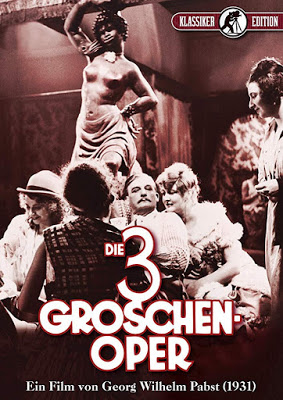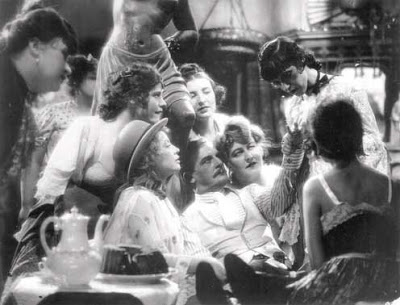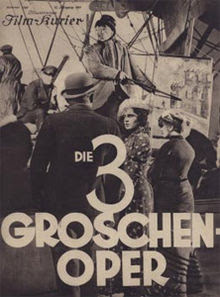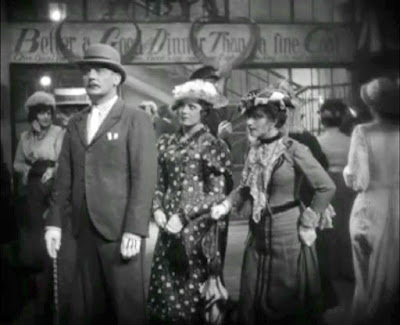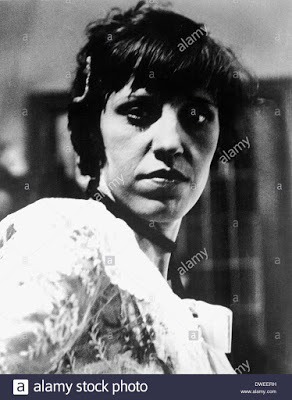The 3 Penny Opera
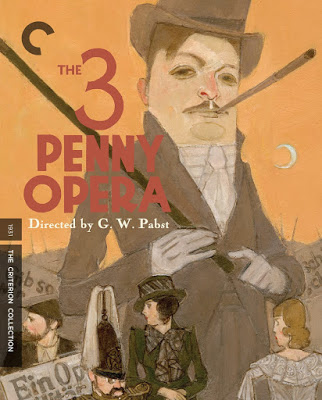
Director: G.W. Pabst
Year: 1931
Rating: 8.0
Country: Germany
Oh, the shark has pretty teeth, dear.
And he shows them pearly white.
Just a jack knife has Macheath, dear
And he keeps it out of sight
From a song titled "Die Moritat von Mackier Messe" but now better known as
Mack the Knife after Bobby Darin knocked it out of the park in 1959. It is
the first song in this brilliantly directed film by G.W. Pabst of the Bertolt
Brecht play "with songs" as he termed it. Brecht had actually taken a play
by John Gay who wrote The Beggars Opera in 1728 and revised it for modern
audiences and added his political views on capitalism. Though he kept Gay's
location in London, Brecht clearly has Germany of the 1920's in mind. He
brought on Kurt Weill to write the classic music for a few poems that Brecht
took from Francois Villon and it was a huge success on the stage.
Pabst came on to direct the film (Warner Brothers was one of the producers)
but he was sued for taking out too much of the political content by both
Brecht and Weill who were ironclad Marxists. Nevertheless, the film certainly
kept some of it, particularly in the final act but it never hits us over
the head with it. Thankfully, we still have the film around today because
once Hitler came to power he burned all the copies he could find. At the
same time Brecht and Weill wisely hightailed it out of Germany.
I think it is a brilliant film - up there with Pabst's Pandora's Box and
Diary of a Lost Girl that had both starred Louise Brooks. It is wonderfully
stylized with it all being shot on well-designed interior and exterior sets
and there is a theatricality to it - a rhythm to it - not only the music
that permeates it but in the way the actors move, the marching, the robberies,
the escape - everything feels calibrated to a beat. The cinematography from
Fritz Arno Wagner is expressive and vivid - focusing at times on faces that
only a mother could love and the camera moves fluidly through scenes like
soft butter. Wagner worked with Murnau (Nosferatu), Robison (Warning Shadows),
Fritz Lang (Spies and M) and with Pabst a few times. It is a pleasure just
to watch how he shoots and lights the film.
Mackie (Rudolf Forster) is a charming scoundrel who has an eye for women
and a loose wallet to be gotten. He runs a gang of scalawags who he organizes
to steal everything not nailed down. Well-dressed like a gentleman, a derby
hat titled at a roguish angle and a flirting patter that few women that can
resist. While walking down the street he picks up the lovely lass Polly and
before the night is out (in a wonderful smoky bar scene) he has proposed
to her for marriage to take place that very night - something that he seems
to do often. He orders his gang to steal everything needed - including a
pastor - to have a wedding celebration.
And that they do but it turns out that Polly is the daughter of the King
of Thieves who has organized all the beggars and taught them the art of suffering
for money. He doesn't take kindly to his daughter marrying down and declares
war on Mackie. Later Mackie is betrayed by an old girlfriend/prostitute while
he is visiting a brothel while on the run from the police. This is Jenny
played by Lotte Lenya, who was married to Kurt Weill at the time and many
years later was the memorable Rosa Klebb in From Russia with Love. She gets
to sing Jenny's Lament.
The anti-capitalistic message is brought late into the film. When Mackie
goes on the run Polly takes over the gang and quickly moves it to a "legit"
business - buys a bank - as she explains to her boys - why pickpocket for
small change when with a bank you can legally steal a lot more money and
be respectable. And in the end the poor are as usual screwed by everyone.
The mood of the film is never heavy or dreary - amusing, satirical, light
on its feet with a feel good ending and a feel good song. Just a terrific
film.


